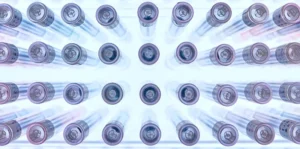SEPTEMBER 4, 2020
How to Read Your Paternity Test Results

It’s only natural for someone who has been cheated on to ask why their partner was unfaithful. A handful of studies have suggested that genes and hormones may predispose some men and women to infidelity. So that begs the question: Is cheating genetic? Here’s a look at what experts say about this and related theories.
CALL FOR A FREE CONSULTATIONWhat’s Your Brain Got to Do with It?
According to the biological anthropologist Helen Fisher, the evolution of the following three primary brain systems are linked to human love and likely play a role in infidelity:
- The sex drive encourages people to have intercourse
- Romantic love motivates individuals to reserve energy by courting a limited number of partners
- Partner attachment drives mating individuals to remain together at least long enough to rear a single child through infancy together
These three basic neural systems interact with one another and other brain systems in various ways, causing the many emotions and behaviors involved in human reproductive strategies. Our brain architecture makes it biologically possible to feel both deep attachment for one partner and intense romantic love for another individual. This ability may be a contributing factor in infidelity.
What Do Scientific Studies Say about Infidelity?
A 2015 Finnish study analyzed data from 7,378 Finnish study participants, some of whom were identical twins, to determine if infidelity is an inheritable trait. Findings included:
- Eight percent of men versus four percent of women admitted to having more than one sexual partner in the last year
- Cheating or non-cheating data was similar in male and female identical twins but not in fraternal twins or non-twin siblings
If They Did It Once, Will They Do It Again?
A 2017 study was the first to systematically address whether past infidelity predicted a higher risk of cheating again in the future. The study’s results showed that people who engaged in infidelity, knew about a partner’s infidelity, or suspected a partner of infidelity had a higher risk of repeating these patterns in their next romantic relationships. This research suggests that the phrase “once a cheater, always a cheater” is founded in science.
CALL FOR A FREE CONSULTATIONWhile researchers haven’t identified an infidelity gene, certain behavioral traits are linked to cheating. These risk factors include the following:
- Narcissism
- A low degree of agreeability or conscientiousness
- Lack of vulnerability and feeling intertwined as a couple
- Partner differences in sexual inhibitions or excitement
- Viewing differences in a partner as flaws
Although DNA is an invaluable tool in many other situations, saying “My DNA made me cheat” isn’t going to fly until the day more persuasive scientific evidence proves otherwise. If you think your partner is cheating on you, we urge you to learn more about our DNA test to help determine if your suspicions are true.
About DNA Diagnostics Center (DDC)
DNA Diagnostic Center is the world leader in paternity and relationship testing. We serve healthcare professionals, government agencies, and individuals around the world to determine family relationships with trusted accuracy.
More Questions? Don’t hesitate to call us: we’re here to help!
CALL NOW




